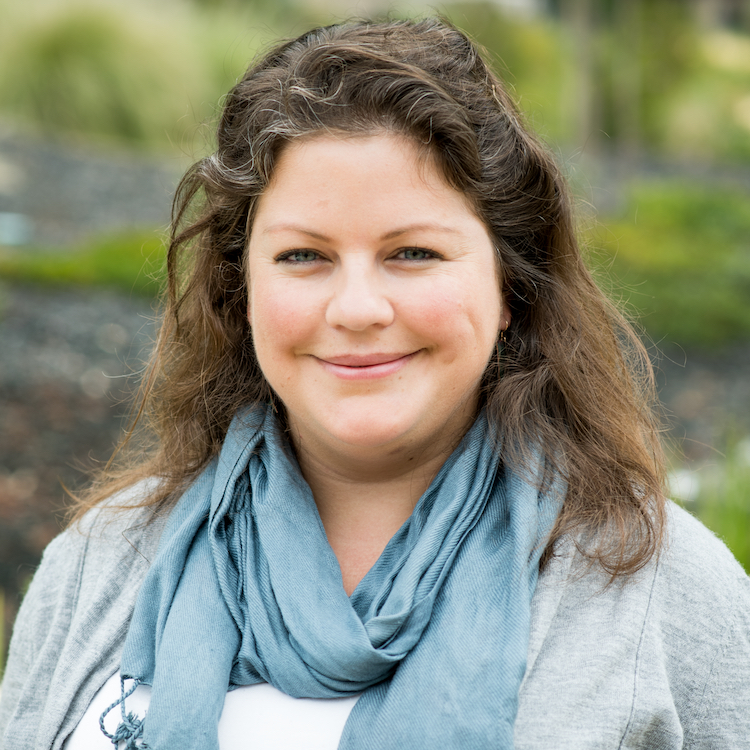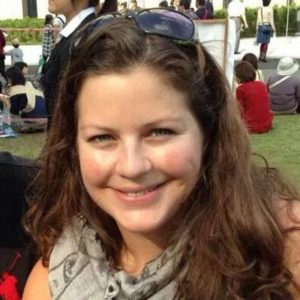Jenny Mortimer
Director of Plant Systems Biology, Joint BioEnergy Institute (JBEI)
Affiliate Staff Scientist
Associate Professor, University of Adelaide, Australia

Building: 978, Room 4466
Mail Stop: 978-4121
JCMortimer@lbl.gov
http://www.mortimerlab.org/home.html
https://www.jbei.org/person/jenny-mortimer/
https://www.sorghummetabolicatlas.org/
https://researchers.adelaide.edu.au/profile/jenny.mortimer
Links
Divisions
Environmental Genomics and Systems Biology
- Molecular EcoSystems Biology
Secondary Affiliation:
Biological Systems and Engineering
- BioEngineering & BioMedical Sciences
Research Interests
Jenny is a plant glycobiologist who is interested in understanding the myriad ways that plants synthesize and use complex sugars: to build their cell wall, and to glycosylate other molecules, including proteins and lipids. Her team applys synthetic and systems biology tools with the overal goal to develop more sustainable bioenergy crops.
As part of the Joint BioEnergy Institute (JBEI) we are deciphering how a cell wall is made and assembled, and applying this knowledge to the predictable engineering of dedicated biomass crops (primarily sorghum and switchgrass). As part of the m-CAFEs SFA (Microbial Community Analysis & Functional Evaluation in Soils Scientific Focus Area), we are exploring how roots interact with a synthetic microbial community. We aim to enhance those interactions via engineering, to support the development of more sustainable crops that require fewer inputs (e.g. irrigation, pesticides). For m-CAFEs, and other projects, we are making use of fabricated ecosystems (EcoFABs, EcoPODS), as we attempt to bridge the gap between data gathered in the lab and that collected in the field. Other projects include exploring how cell wall esters contribute to forest volatile emissions when trees undergo drought, and developing resources to support sorghum’s use in biotechnology research.
Programs & Initiatives
Recent Publications
Related News
Plant Single-cell Solutions for Energy and the Environment Workshop Report Released
On January 23, 2020, Berkeley Lab hosted a workshop on opportunities afforded by single-cell technologies for energy and environmental science, as well as conceptual and technological grand challenges that must be tackled to apply these powerful approaches to plants, fungi and algae. This event, which was spearheaded by Diane Dickel in the Environmental Genomics and Systems Biology Division, brought together a diverse group of leaders in functional genomics technologies from academia, the National Laboratories, and local research institutions.
Biosciences Area FY21 LDRD Projects
The projects of 15 Biosciences Area scientists and engineers received funding through the FY21 Laboratory Directed Research and Development (LDRD) program.
Mortimer Participates at AAAS Forum on Science & Technology Policy
 Jenny Mortimer, Deputy Vice President of the Feedstocks Division at the Joint BioEnergy Institute (JBEI) and Scientist with the Environmental Genomics and Systems Biology (EGSB) Division, participated at a 2018 AAAS Forum on Science & Technology Policy panel entitled “Science Competitiveness in Relation to Public Support for Science”. Panelists discussed how the scientific community must work to maintain societal relevance and build trust. Mortimer presented a code of ethics for scientists recently developed by the World Economic Forum’s Young Scientists community. The code serves as a tool to nurture a positive change of culture in the research world by not only guiding and shaping the behavior of individuals but also the processes of the scientific institutions that are to facilitate this cultural shift.
Jenny Mortimer, Deputy Vice President of the Feedstocks Division at the Joint BioEnergy Institute (JBEI) and Scientist with the Environmental Genomics and Systems Biology (EGSB) Division, participated at a 2018 AAAS Forum on Science & Technology Policy panel entitled “Science Competitiveness in Relation to Public Support for Science”. Panelists discussed how the scientific community must work to maintain societal relevance and build trust. Mortimer presented a code of ethics for scientists recently developed by the World Economic Forum’s Young Scientists community. The code serves as a tool to nurture a positive change of culture in the research world by not only guiding and shaping the behavior of individuals but also the processes of the scientific institutions that are to facilitate this cultural shift.



